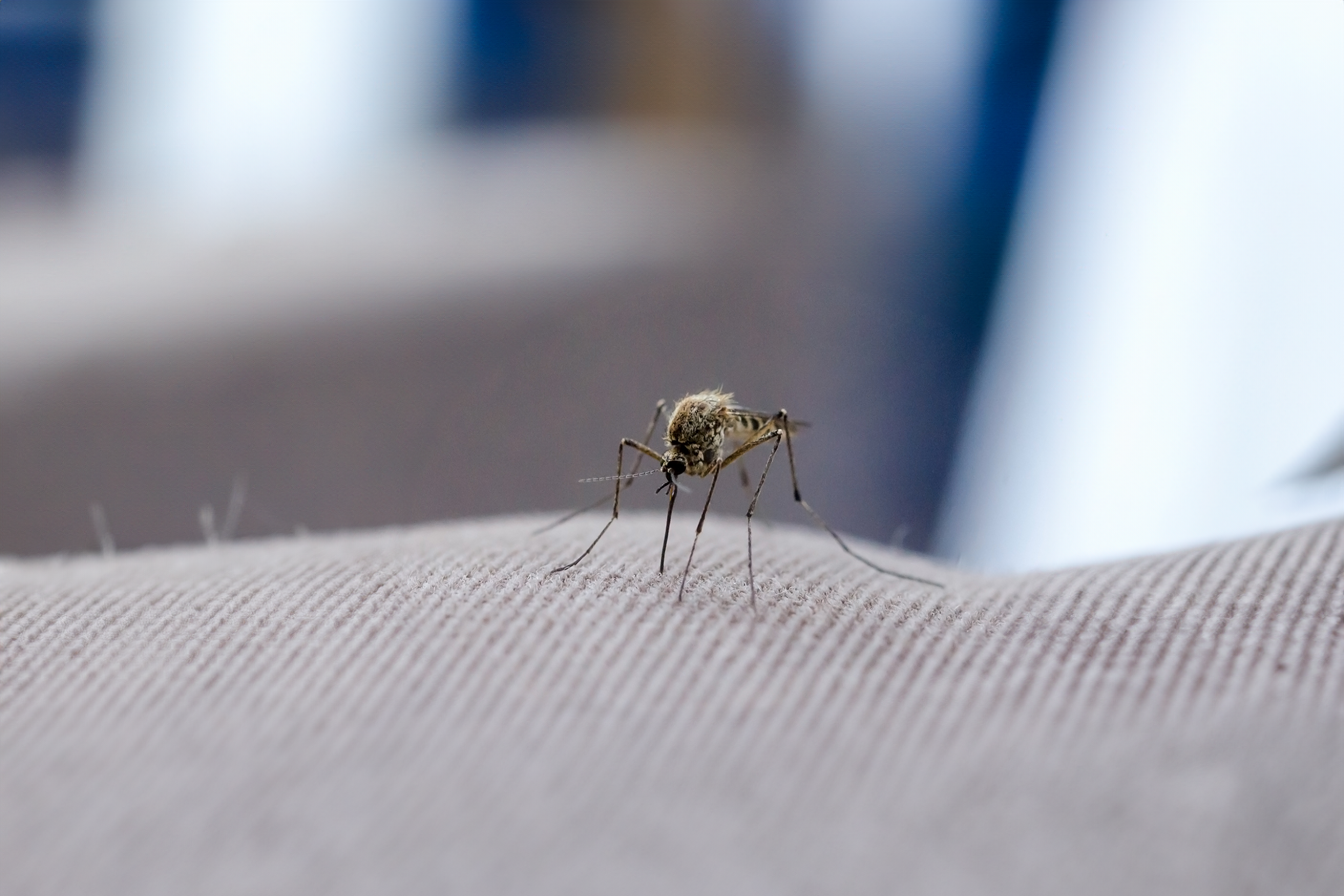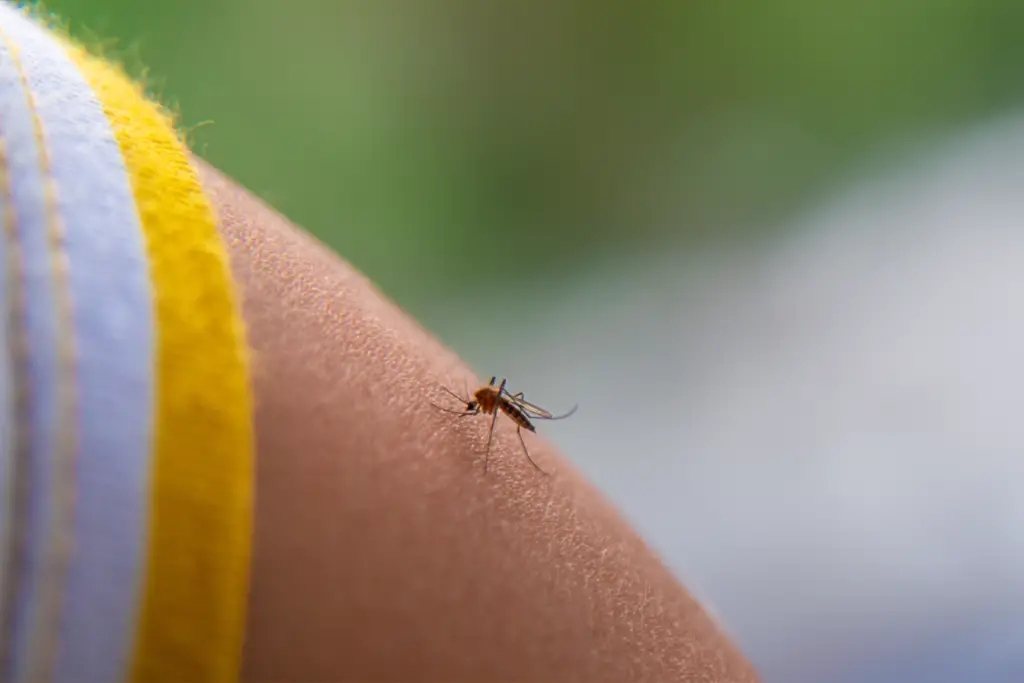
When you’re enjoying outdoor activities, you might wonder about the clothes you wear and their effectiveness against mosquito bites. Mosquitoes certainly have the ability to bite through some types of clothing, making your choice of attire an important consideration during mosquito season.
Choosing the right fabrics can be a simple yet effective way to protect yourself from these persistent pests. While they can pierce through lighter materials, thicker fabrics often provide a more reliable barrier. Knowledge about which materials offer the best protection can make a difference in your comfort and health, especially in areas where mosquitoes are prevalent.
Mosquito Behavior and Clothing
When you dress for the outdoors, it’s crucial to consider how mosquitoes interact with different types of clothing, which can affect their ability to bite you.
Factors Affecting Mosquito Bites Through Clothes
Mosquitoes use their proboscis, a needle-like mouthpart, to pierce skin and access blood. However, whether a mosquito can bite you through your clothing depends on several factors:
- Fabric thickness: Thicker materials provide more of a barrier to the mosquito’s proboscis.
- Weave tightness: Clothes with tighter weaves leave less space for mosquitoes to insert their proboscis.
- Fit of clothing: Loose-fitting garments can create a barrier between your skin and the mosquito, while tight clothes may make it easier for them to bite.
Types of Clothing More Susceptible to Bites
Your choice in attire plays a significant role in mosquito bite prevention:
Thin fabrics: Materials like spandex or thin cotton can be penetrated easily by mosquitoes. Healthline notes the vulnerability of thin fabrics to mosquito bites.
Lightweight and loosely woven fabrics: Garments made from lightweight linen or loosely woven cotton are less likely to offer protection compared to those made from thicker, more tightly woven fabrics.
By selecting appropriate clothing, you can really impact your chances of being bitten by mosquitoes.
Prevention and Protection Strategies
Protecting yourself from mosquito bites through the clothes you wear involves choosing the right materials and applying additional treatments to your fabrics. Here’s how you can enhance your protection.
Effective Materials and Weaves
The type of fabric and the tightness of the weave play significant roles in preventing mosquito bites. Mosquitoes are less likely to bite through materials such as polyester, nylon, or high-density fabrics because of their thickness and tight weave. When selecting clothing to prevent mosquito bites, consider garments made from synthetic fibers or densely woven fabrics like canvas.
- Materials: Polyester, Nylon, Spandex
- Weaves: Dense, tight, canvas-like
Choosing these types of materials can create a barrier that mosquitoes find difficult to penetrate.
Insect Repellent Treatments for Fabrics
For added protection, consider treating your clothes with insect repellent specifically designed for fabrics. Permethrin is an insecticide that can be applied to clothing, which not only repels but can also kill mosquitoes upon contact. It’s important to follow the instructions carefully when applying permethrin to ensure that it bonds effectively to the fabric and provides long-lasting protection.
- Apply: Permethrin treatment according to package instructions
- Reapply: After several washes, as per product guidelines
Always check the clothing label and the repellent’s instructions to make sure they are compatible. This duo of effectively woven materials and repellent treatments gives you a robust shield against mosquito bites.
Health Implications of Mosquito Bites
Mosquito bites can be more than just an itchy annoyance; they may have significant health implications for you, ranging from disease transmission to allergic reactions.
Risks of Disease Transmission Through Clothes
Even though your clothing acts as a barrier, some mosquitoes can pierce through thin fabric. Diseases like malaria and other mosquito-borne illnesses can be transmitted if you’re bitten by an infected mosquito, regardless of clothing coverage.
Allergic Reactions and Skin Concerns
Local Skin Reactions: A mosquito bite typically causes a red, swollen bump that can itch persistently. You might notice a bite very quickly after it happens.
Severe Allergic Reactions: In rare cases, if you’re allergic, you may experience more pronounced symptoms from a mosquito bite, such as extensive swelling, hives, or blisters, which are detailed on the Mayo Clinic website. It’s important for you to monitor your reactions, especially if they seem out of the ordinary.
Frequently Asked Questions
In this section, you’ll find answers about the materials mosquitoes can bite through, the effectiveness of various mosquito repellents, the itchiness of mosquito bites, and what you can do to protect yourself from these pesky insects.
What types of fabric can mosquitoes bite through?
Mosquitoes are capable of biting through several types of thin fabrics such as cotton and linen. Fabrics with a tighter weave and heavier materials like leather offer better protection against mosquito bites. Here’s what you need to know about the clothes that can prevent mosquito bites effectively.
How effective are natural mosquito repellents in comparison to chemical ones?
Natural mosquito repellents usually contain ingredients like oil of lemon eucalyptus, citronella, and peppermint, which can provide short-term protection. However, chemical repellents containing DEET or picaridin are often more effective and provide longer-lasting protection.
After how long do mosquito bites typically start to itch?
A mosquito bite typically starts to itch within a few minutes to an hour after the initial bite. This itchiness is due to the body’s reaction to the mosquito’s saliva.
What measures can I take orally to prevent mosquito bites?
Taking vitamin B1 supplements, also known as thiamine, may help repel mosquitoes as it alters your body’s scent. However, you should consult with your healthcare provider before taking any oral measures to prevent mosquito bites.
Are there specific smells known to repel mosquitoes?
Yes, certain smells like lavender, eucalyptus, and citronella are known to repel mosquitoes. Products or oils containing these scents can act as a natural deterrent.
Is it common for mosquitoes to bite through bed sheets while you sleep?
It is less common for mosquitoes to bite through bed sheets because the fabric is typically thicker and layered when you sleep. Yet, loose and thin bed sheets can sometimes be penetrable by mosquitoes. To reduce the risk, use thicker layered bed sheets and consider mosquito netting for your bed.
Driven by a passion for those tiny creatures that rule our world, we at Bug Domain strive to be your go-to resource for information on insects.



